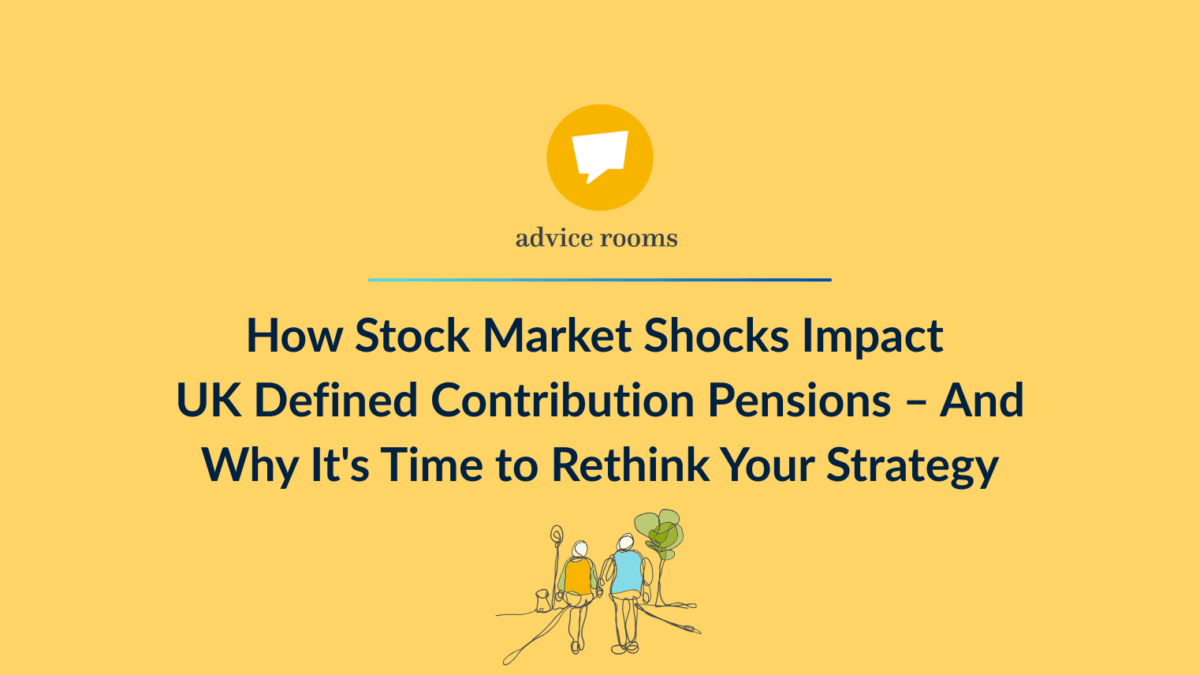
How Stock Market Shocks Impact UK Defined Contribution Pensions – And Why It’s Time to Rethink Your Strategy
In an increasingly connected global economy, what happens on the trading floor in New York or Tokyo doesn’t stay there. For UK savers in defined contribution (DC) pension schemes, stock market swings can have an immediate and visible impact on retirement pots. A volatile trading week can wipe thousands off the value of pension investments—and often does.
But how serious is this? Will markets bounce back, as history suggests? More importantly, what should you do now in terms of financial planning to ensure your pension strategy is still fit for purpose?
How Market Dips Instantly Affect DC Pensions
Unlike defined benefit (DB) schemes, DC pensions depend entirely on investment performance. What you get at retirement isn’t based on your salary or service length but on how your invested contributions grow over time.
This means your pension is directly exposed to the stock market. When markets fall, the value of your pension pot tends to drop with them. Many pension holders saw this firsthand during recent periods of market stress, including:
- The 2020 COVID crash
- The 2022 inflation-driven bond market crisis
- Ongoing geopolitical tensions and rate hike cycles
Because pension contributions are typically invested in a diversified mix of equities, bonds, and other assets, the effect can be swift and significant, especially for those heavily exposed to risk assets like equities.
Why Markets Usually Recover – But Timing Matters
There’s no denying that markets are cyclical. History shows us time and again that recoveries follow crashes. The FTSE 100, S&P 500, and other indices have always bounced back over the long term, though the timing and pace of recovery vary.
For example:
- The 2008 financial crash saw global markets fall by over 40%, but recoveries began within 18 months.
- COVID-19 led to a sharp market drop in March 2020, but most indices rebounded strongly by the end of that same year.
These short-term shocks typically do not require immediate action if you are still 10, 20, or 30 years from retirement. Regular contributions made during downturns can even work in your favour, thanks to pound-cost averaging—buying more pension units when prices are low.
However, timing becomes crucial the closer you are to retirement. A market crash just before you begin drawing your pension can impact your retirement income, especially if you start withdrawing while values are low.
The Real Question: Is Your Pension Strategy Still Right for You?
Market volatility is a given, but that doesn’t mean your strategy should stay static. Many people are still invested in their default pension funds, established years ago, with little understanding of what they are invested in or whether those investments still align with their current life stage or retirement goals.
Here’s what you should be thinking about:
1. Check Your Risk Exposure
Younger savers can typically afford higher equity exposure to chase growth. However, as you approach retirement, shifting toward lower-risk assets, such as bonds, gilts, and cash equivalents, helps reduce the risk of a last-minute loss.
Most pension providers offer “lifestyling” – a gradual de-risking strategy that automatically shifts your assets as you age. It’s worth checking if this is in place and whether the glide path matches your retirement plans.
2. Diversify, Diversify, Diversify
Your pension shouldn’t depend on any asset class, region, or sector. A well-diversified pension portfolio is more likely to withstand shocks in any one part of the market.
This means combining:
- UK and global equities
- Government and corporate bonds
- ESG funds (if they align with your values and risk appetite)
3. Revisit Your Retirement Target
When was the last time you checked your projected retirement income? Most pension dashboards will provide a forecast, but remember that these projections are based on specific growth rates.
With recent market turbulence, your pot may be behind where it should be. Use pension calculators or speak to an adviser to figure out:
- Are you still on track?
- Do you need to increase contributions?
- Should you delay retirement or explore phased drawdown options?
4. Don’t Panic, But Don’t Ignore It Either
The worst thing you can do is panic and shift everything to cash after a market fall—it locks in losses and removes the chance to benefit from a rebound. However, ignoring your pension and hoping for the best is also not a viable strategy.
Think of your pension like a garden. It doesn’t need constant digging up, but it does need seasonal checks, pruning, and the occasional reshuffling.
The Bottom Line: A Wake-Up Call, Not a Crisis
The current market uncertainty—driven by inflation concerns, geopolitical risks, and central bank movements—is unsettling. And it’s having a real-time impact on pension values across the UK.
But that doesn’t mean your financial future is doomed. Market recoveries are typical. What’s more important is how you respond.
Take this moment as an opportunity:
- Re-evaluate your strategy
- Make sure you’re invested in the right mix for your goals
- Adjust your contributions if needed
- Don’t be afraid to seek professional advice
Final Thought: Your Retirement Deserves Attention Now
You may not be retiring today or tomorrow, but your decisions now can significantly impact your retirement lifestyle for decades. A volatile market isn’t the end of the road. It’s a reminder that a good pension strategy is never “set and forget.”
Make the changes today that your future self will thank you for.








